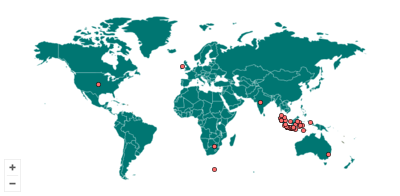THE PRACTICE OF MONOPOLISING FISH PRICES ON TOKE BANGKU IN ISLAMIC ECONOMIC LAW’S PERSPECTIVE
DOI:
https://doi.org/10.22373/al-mudharabah.v5i2.6558Keywords:
Price Fixing, Monopoly, Buying and Selling, ShopkeeperAbstract
The practice of monopoly is a type of violation in bermuamalah because it will cause the market mechanism to be disrupted, so that producers will get a large profit, while consumers due to the hoarding action will take suffering or loss. So, the result of monopoly is very unjust, selfish, and irresponsible. TPI Lampulo is one of the biggest fish trading transaction places in Banda Aceh. The determination of fish price dominated by Toke Bangku, the price has been going on for a long time. It is shown that the sale and purchase is not based on willingness and is reasonable, while Toke Bangku to set the selling price of fish depends on the weather and market conditions. This research uses a descriptive method, and the data is analysed qualitatively. Data were collected based on field research and literature review. The results showed that the price applied by Toke Bangku was not so according to the fishermen because of the law of price, while Toke Bangku determined the selling price following the weather conditions at sea and the market. In the review of Acehnese customs, Toke Bangku's pricing is in accordance with the laws and customs since the time of the sultanate of Aceh. Meanwhile, according to the Islamic economic perspective, Toke Bangku and fishermen receive rewards in this world and the next. This indicates that the value of tawhid is always embedded in life.
Downloads
Published
How to Cite
Issue
Section
License
Copyright (c) 2025 Al-Mudharabah: Jurnal Ekonomi dan Keuangan Syariah

This work is licensed under a Creative Commons Attribution-NonCommercial-ShareAlike 4.0 International License.












